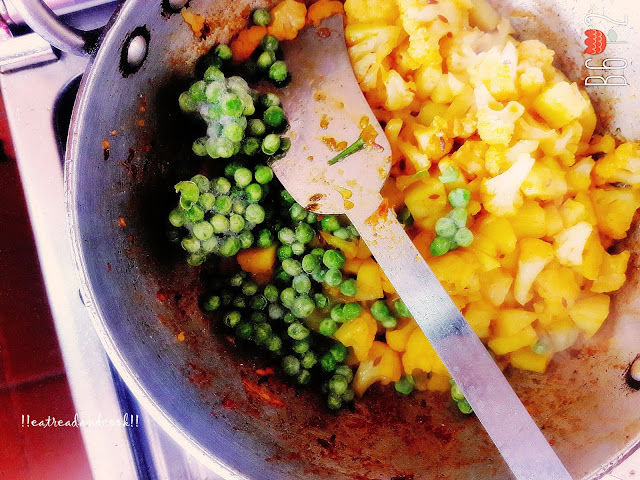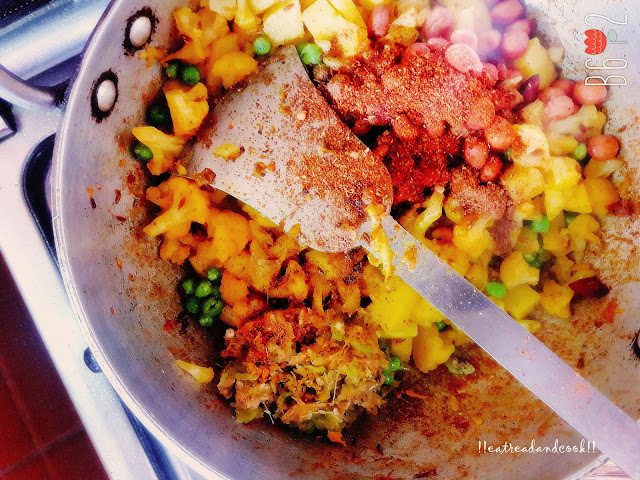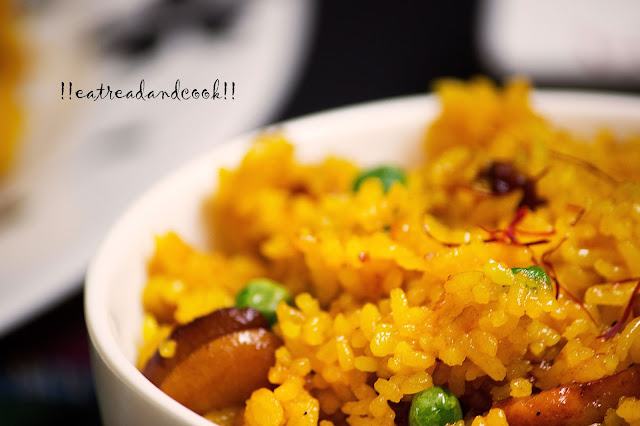Fulkopir Singara / Cauliflower Samosa
Each and every member of
my family is a certified and dedicated tea-holic. Not that it does any good for
their health and life (rather the opposite)...but they religiously drink tea,
boiling them mercilessly in creamy full fat milk and finally dunking some good
amount of lumps of sugar into it. Tea is made into big batches...because a
small cuppa “chai”...is too lame for them. So there are big mugs in our home,
shining brightly on the racks along with the crockery. These mugs are filled
till their neck and then served to the respective persons. Once in the morning,
once in the noon, once in the evening and once after that. Not to mention, there
are small servings in between this routine, simply because someone is having a
thought about tea or having a headache...the excuses are simply endless.
Living with all these tea
freaks...the only perk that kept me alive were the snacks and the biscuits that
came with those mugs of tea. Samosa / Singara being one of them. Generally it is
the simple spicy potato filling all throughout the year...but as soon as the
winter comes, it magically transcends into a spicy and sweet cauliflower
filling with a little crunch from the peanuts. I was one of those ridiculous
creatures who realized winter is here from the cauliflower stuffing in the
samosa / singara.
 |
| Heat oil and add the cumin seeds. Let them sizzle. |
 |
| Add the blanched cauliflower florets and cook until they become nicely golden. |
 |
| Add the parboiled potatoes. |
 |
| Add the turmeric powder, red chilli powder and salt. |
 |
| Add the green peas and cook until the cauliflower florets are soft and cooked. |
 |
| Add ginger paste, chopped green chillies, ground cumin seeds, ground coriander seeds, garam masala powder and peanuts. |
 |
| Add the chopped coriander leaves and lime juice. |
 |
| Mix and stir and switch off the flame. |
Fulkopir Singara / Phulkopir
Singara / Cauliflower Samosa
Makes about 10 singara /
samosa
Ingredients:
For the wrapping:
2 cups of all purpose
flour
1 tsp nigella seeds
1/2 tsp carom seeds
1 tsp nigella seeds
1/2 tsp carom seeds
A pinch of salt
4 tbsp oil
Warm water to mix and
knead the dough
For the filling:
1 medium potato – peeled,
cubed and parboiled
1 small cauliflower – cut
into small florets
A handful of green peas
A handful of fresh coriander
leaves – chopped
1 tsp cumin seeds
1 tsp turmeric powder
1 tsp red chilli powder
1 tsp roasted and ground
cumin seeds
1 tsp roasted and ground
coriander seeds
1 tsp garam masala powder
Juice of 1 lime
1 inch ginger – paste
2 green chillies – chopped
A handful of peanuts
A handful of golden
raisins
Salt
2-3 tbsp oil
Method:
First make the dough.
Take the flour in a large
bowl and make a well inside it.
Pour the oil and gently
mix it with the flour to give it a crumbly texture.
Next add the salt and warm
water to collect all the dough in one place. Add water in small portions so
that you can control the texture of the dough. Too much water will make the
dough sticky and call for more flour.
Once all flour comes
together start kneading the dough with the back of your palm and knead it until
you have a smooth lump of flour.
Finally add the nigella seeds and carom seeds and knead a little more to spread them evenly.
Finally add the nigella seeds and carom seeds and knead a little more to spread them evenly.
Cover the bowl with a damp
cloth and keep the dough aside.
Make the filling:
Fill a big pot with some
water and let it come to a boil.
Add the cauliflower
florets and blanch them for 2-3 minutes. Drain the water and keep those florets
aside.
Heat the oil in a kadai and add the cumin seeds to them. As the
seeds start to sizzle add the blanched cauliflower florets and sprinkle some
salt over them.
Stir and cook the
cauliflower florets until they become a little golden.
Add the parboiled potatoes
and give a good stir to mix.
Add turmeric powder, red
chilli powder, ground cumin seeds and coriander powder.
Add the green peas, ginger
paste, chopped green chillies and peanuts.
Stir and cook until the
cauliflower florets are nice and soft.
Finally taste and adjust
the seasonings.
Finish off with the garam
masala powder, fresh coriander leaves and a good squeeze of lime juice.
Make the samosa / singara:
Take the dough and make 5
large balls from them.
Roll them into a large
medium thick chapatti and cut the chapatti into half.
Take one of those halved
portion and give it a shape of the cone.
Stuff 1 tbsp of the
filling inside the seal the edges. There is a little fold that you have to do
when you are sealing the edges and that small nudge gives your sinaga or samosa
the classic traditional shape. But that portion is really difficult to explain
and understand in words. You can follow this video to make that traditional
samosa shape.
Fry the samosa / singara:
Take enough oil to deep
fry and keep the flame on low to medium.
The oil should not be too
hot.
Put the samosas inside the
oil in small batches and fry until they become golden brown. It takes 10-12
minutes to properly fry the singara or samosa. If you cook it any shorter, the
crust will not be cooked from the inside. Switch the flame from low to medium
and from medium to low, as required, to keep the temperature of the oil in
control.
Serve the hot singara /
samosa with ketchup or chutney of your choice.












Comments
Post a Comment